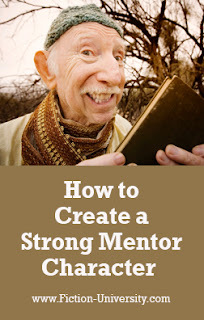Janice Hardy's Blog, page 9
August 14, 2023
Stuck on a Scene? Try This Trick to Get it Moving Again
 By Janice Hardy, @Janice_Hardy
By Janice Hardy, @Janice_Hardy The problem isn’t always where you think it is.
Before I dive in today, I'm also guest posting over at Writers in the Storm, sharing tips on How to Make Clichés Work for You. Come on over and say hello.
Unless you’re very, very lucky, at some point in your writing you’re going to get stuck. You’ll write yourself into a corner and won’t be able to figure out how to get your protagonist where they need to go, or maybe you’ll have no idea what the conflict is supposed to be. You’ll sit at the keyboard and grow more and more frustrated by the minute until you want to scream. Or take up botany.
It’s not writer’s block—you can write, it’s just that the scene has stalled and you don’t know what to do to get it moving again.
Instead of struggling to fix the scene that’s not working, try this:
Continue ReadingWritten by Janice Hardy. Fiction-University.com
Published on August 14, 2023 04:46
August 7, 2023
7 Ways Your Characters Can Screw up Their Decisions
 By Janice Hardy, @Janice_Hardy
By Janice Hardy, @Janice_Hardy
Making the wrong choice isn't good in life, but it's great for plotting a novel.
As people, we want to make the right choice, so it's only natural that those are the choices that first come to us as we write a scene. The problem there, is that "doing the right thing" doesn't usually cause the wonderful conflict we need to craft compelling stories. (But when it does it's writing gold.)
Lifehack had a great post about how not to mess up your decisions. The writer in me instantly saw what a fantastic guide it was for crafting characters with bad decision-making skills, which of course makes for more interesting plots. Nobody likes a smarty pants who gets everything right all the time. We want characters with flaws, and issues, who make snap judgements and totally mess things up while trying to make things better.
You really don't want your characters to act like they've three weeks to consider their options just because you took that long to write the scene (and probably had input from fellow writers and friends, too). A decision made in the heat of the moment isn't the same as one made after weeks of considering.
And characters making "in the heat of the moment" decisions can make or break your plot.Continue ReadingWritten by Janice Hardy. Fiction-University.com
Published on August 07, 2023 03:00
August 3, 2023
Behind the Red Pen: What to Look for When Vetting an Editor
 By Jaire Sims, @JaireSims
By Jaire Sims, @JaireSimsPart of the Indie Authors Series
JH: Choosing the right editor for your manuscript is more than just picking the first name on a list or result page. Jaire Sims shares what you need to know when vetting an editor for your novel.
Jaire Sims lives, works, and writes where he was born and raised, Chicago. After spending years with social anxiety and undergoing counseling, he was eventually diagnosed as being on the autism spectrum. Still, he overcame the challenges before him, graduating from Monmouth College with a Bachelor's Degree in Communication Studies. Off and on, he worked on and eventually published his debut novel, Getting By, named a finalist in the 2021 Next Generation Indie Book Awards. Jaire hopes to inspire and nurture aspiring authors and, through his work, champion marginalized voices facing similar struggles to him.
Website | Goodreads | Facebook | Pinterest | Instagram | YouTube
Take it away Jaire…
Continue ReadingWritten by Janice Hardy. Fiction-University.com
Published on August 03, 2023 03:47
July 31, 2023
Are You Missing These Opportunities to Write a Better Story?
 By Janice Hardy, @Janice_Hardy
By Janice Hardy, @Janice_Hardy Transform your story by mining its hidden gems.
One of the many reasons I adore my critique groups is that they push me to tell better stories. When I slack off, they call me on it. When I miss something, they point it out. When I’m not sure what works and throw all kinds of gunk into a scene, they tell me what worked and what needs to go.
After a while, their words started echoing in my head even when we weren’t meeting. When I slack off, miss something, or have too much gunk, and I hear what I know they’re going to say when they read those pages.
Which makes me change it.
Granted, I don’t catch everything, and my changes aren’t always the right changes, but it’s made me much more aware of what I’m doing when I’m drafting a novel. I’m much better now at spotting the gems hidden in the rough words and turning them into diamonds (or at least cubic zirconia).
I guarantee you’re not taking advantage of all the hidden gems in your story.Continue ReadingWritten by Janice Hardy. Fiction-University.com
Published on July 31, 2023 03:00
July 25, 2023
Put Up Your Dukes: Crafting Dynamic Fight Scenes
 By Janice Hardy, @Janice_Hardy
By Janice Hardy, @Janice_Hardy
A strong fight scene is more than just who throws the punches.
One of the first fight scenes I ever wrote was for a fantasy novel, so it involved swords and daggers and a lot of fancy footwork. I wanted to keep track of who did what and where they were, so I used little pewter figures from my D&D box. Step-by-step, I moved the figures around and had my "characters" act out the fight.
While this was a useful way to keep track of the movements, it made for a pretty boring scene, because I focused way too much on the mechanics and not enough on the story.
This is a common problem with fight scenes. Describing the fight isn't the same as showing the action.Continue ReadingWritten by Janice Hardy. Fiction-University.com
Published on July 25, 2023 04:45
July 17, 2023
How to Create a Strong Mentor Character
 By Janice Hardy, @Janice_Hardy
By Janice Hardy, @Janice_HardyMentors are a great tool for telling your protagonist what to do, without telling you protagonist what to do.
The Mentor is one of the more common character archetypes in storytelling, because protagonists need someone to talk to and guide them as they struggle through the plot. The Mentor offers insight, wisdom, and even tools to solve the protagonist’s problems in the novel and helps them grow as the story unfolds.
While often portrayed as the "wise old man" type, the Mentor can be any age, sex, or race (or even species).
Yoda mentors Luke Skywalker in The Empire Strikes BackPolgara mentors Garion in The Belariad seriesCharlotte mentors Wilbur in Charlotte's WebThe Mentor can even be the love interest, such as Like Wilson's character, Emmett, who both helps and eventually falls for Reese Witherspoon's Elle in Legally Blonde.
Continue ReadingWritten by Janice Hardy. Fiction-University.com
Published on July 17, 2023 05:54
July 11, 2023
Seems So: Are Your Characters Misleading Your Readers?
 By Janice Hardy, @Janice_Hardy
By Janice Hardy, @Janice_HardyThings might not always be what the seem.
One of the many strengths of point of view (POV) is that readers get to experience the story world through the eyes of your POV character. And characters can assume incorrectly, have an unfair opinion, or just flat out be wrong.
But sometimes ambiguity sneaks in there when you don't mean it to, and you're not actually saying what you intended to say.
Enter the word seemed.
Seemed isn't always what it seems. Sometimes it reads like an opinion the POV character is making, and others it reads like the author explaining what they know about the situation. And there's a wide gray area where those two overlap, due to narrative distance and point of view. Continue ReadingWritten by Janice Hardy. Fiction-University.com
Published on July 11, 2023 03:00
July 3, 2023
3 Writing Rules You Can Break
 By Janice Hardy, @Janice_Hardy
By Janice Hardy, @Janice_Hardy
Some rules are absolutely made to be broken.
There are tons of rules in writing. Some we need to follow to be understood, others are more like guidelines, and some have gotten lost in translation, and no longer mean what we think they mean. Some are even stated as if they were absolutes, such as, "You should never use adverbs."
It's a lot to remember. However, once you know the rules, you can break the rules.
The trick is knowing which ones to ignore.
I know how to spell, but that doesn't give me the freedom to misspell everything in my manuscript because I think it'll look cool. If you read my work you wouldn't think, "Wow, she's being really creative with the spelling. She must know what she's doing." You'd think, "Wow, she didn't even bother to proof this." Or worse, "She has no clue what she's doing."Continue ReadingWritten by Janice Hardy. Fiction-University.com
Published on July 03, 2023 03:00
June 20, 2023
Form Fitting: Using Story Structure to Your Advantage
 By Janice Hardy, @Janice_Hardy
By Janice Hardy, @Janice_HardyIf you're ignoring story structure, you could be making a huge mistake.
Every novel has structure, whether you outline it or pants it. Stories have followed a basic "beginning-middle-ending" structure since people started telling them. It’s familiar and comfortable for readers, and helps them lose themselves in the tale.
Story structure is a valuable tool that helps us write, keeps our stories tight, and provides a framework for us to express ourselves. It's how people tell stories, and we see it everywhere—including jokes.
I've heard writers dismiss structure as being "too confining" or "a template that stifles creativity," but I disagree. It's not going to force your story into a predictable template unless you use a structure with very specific turning points that don't allow for variety, or be too literal in how you use the turning points of any given structure. A "dark moment" just means "the protagonist's lowest emotional point in the story," and that can be anything. Continue ReadingWritten by Janice Hardy. Fiction-University.com
Published on June 20, 2023 03:00
June 15, 2023
From Character to Short Story Plot
 By Rayne Hall, @RayneHall
By Rayne Hall, @RayneHallPart of the Focus on Short Fiction Series
JH: Not every story starts with plot—some start with character. Rayne Hall shares tips and exercises to develop your short story idea by developing your character.
Today, I want you to pick out one of the short story ideas dancing around in your head. Most writers have a lot of half-formed ideas, all demanding to be written. Choose one of them, and I’ll show you how to refine your idea by focusing on the main character
1. In the scenario of your vague idea, who wants or needs something?
Choose her as the main character, and write the story from her perspective character. (I use the female pronoun; you can of course choose to write about a male.)
Continue ReadingWritten by Janice Hardy. Fiction-University.com
Published on June 15, 2023 02:56



